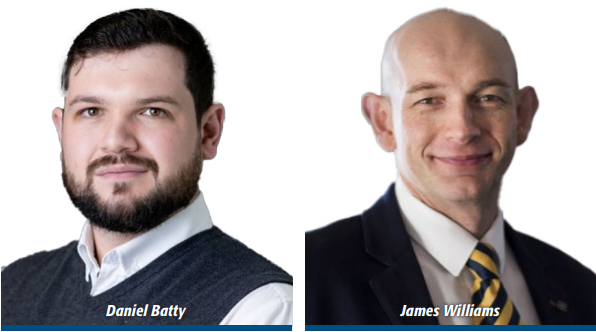07 February 2024

AI is taking the world by storm – but what are the implications for Africa’s mobile operators?
Artificial Intelligence (AI) is, without a doubt, the technology story of the year for 2023 following the historic launch of ChatGPT in November 2022. Across the globe, AI is expected to deliver numerous benefits to mobile network operators (MNOs), addressing challenges and offering new opportunities for enhancing growth and efficiency. While investments to date have been focused on the western world, Africa stands to leapfrog other regions and dive straight into AI/ML for mobile.
“AI is gaining huge traction amongst the 200+ global membership of the Mobile Ecosystem Forum, irrespective the area(s) of mobile they are active in,” says James Williams, director of programmes, Mobile Ecosystem Forum (MEF). “It’s a topic on everybody’s lips, but from what I have seen this year, MNOs are in pole position to benefit more than most from what is undoubtedly disruptive technology.”
Maintaining the network
AI is already making a significant impact on mobile networks across the continent. MTN plans to migrate to Microsoft’s Azure’s cloud computing platform to tap into ML and AI to deliver operational efficiency across its footprint; while MTN Benin and Ericsson have entered a partnership to deploy AI and ML solutions to address throughput degradation and provide improved customer satisfaction.
AI algorithms can analyse network performance data to optimise coverage, capacity, and reliability, and can predict and prevent network equipment failures by analysing historical data and identifying patterns that may indicate potential issues.
It can automate routine tasks, such as network maintenance and troubleshooting, leading to operational cost savings. Additionally, predictive analytics can help operators to allocate resources more efficiently, optimising capital and operational expenditures.
“Alongside new network deployments, AI drives automation behind dynamic real-time network optimisation. This includes optimising coverage, managing capacity, and ensuring the efficient and most effective use of scarce spectrum resources,” agrees Daniel Batty, space and spectrum policy analyst, Access Partnership.
“The primary benefit I see is the real ability at long last to make sense of the huge amount of ‘dark data’ MNOs generate,” says Williams. “Getting a superb handle on behavioural patterns, and really getting clear insights within their networks by tasking AI to do so, will bring MNOs much closer to what their customers REALLY need. At the end of the day, it means being able to increase revenue and margin, all whilst providing a neat competitive edge.”
“AI may also enhance physical infrastructure itself when paired with IoT sensors enhancing predictive maintenance through forecasting and predictive analytics,” adds Batty. “This allows the detection of fault vectors before they materialise, allowing them to be assessed and repaired, thereby increasing the longevity of the network infrastructure.”
With cybersecurity an increasing threat in Africa amidst rampant digitalisation – and on a continent where just 10% of businesses utilise cybersecurity tools – AI stands to benefit MNOs by identifying and mitigating potential security threats in real-time, protecting both the network and customer data, and in turn cutting customer churn.
Moreover, AI algorithms can detect unusual patterns in user behaviour, helping operators identify and prevent fraudulent activities such as SIM card cloning, subscription fraud, and unauthorised network access.
AI can also be used to tackle the digital divide; smart network planning, for example, and the use of low-cost, energy-efficient technologies, can help extend connectivity to rural and underserved areas.
“AI models may play a significant role in developing network deployment strategies to bridge the digital divide and plan network expansion in the most efficient and cost-effective way,” agrees Batty. “At the network level, AI enhances the design of complex networks allowing for innovative deployment models such as picocells. These low-powered networks allow for strong coverage in densely populated areas, such as Lagos or Johannesburg.”
Outside of network management, and perhaps one of the hottest topics in AI today, is its application on the consumer end, streamlining customer service in finance, transportation, manufacturing, and retail, among other markets. MNOs stand to gain hugely through the deployment of AI for front-facing applications, cutting operating costs and augmenting valuable insights.
“AI enhances customer services through virtual assistants and chatbots to assist with loading data, changing SIMs and any other variety of customer query. This frees up human resources within the MNO to be tasked with more difficult queries,” says Batty.
“AI can help boost effectiveness of technology, decrease power consumption, more rapidly identify network elements that are on course to fail well before they actually do, etc.,” adds Williams. “For me though, it’s really that ability to get to know your customers so much better and at a pace and scale that only recently would have been inconceivable.”

Capitalising on VAS
Stalling core service revenues amidst increased commoditisation prices of mobile and data and competing technologies like fibre and satellite becoming increasingly accessible and affordable, are leaving Africa’s MNOs in a tricky spot with declining profitability. Accordingly, many are incorporating VAS – be it mobile money, gaming, OTT, etc. - into their ecosystem.
AI stands to play a key role here for operators refining their VAS offerings, helping drive monetisation further. AI-powered analytics can provide insights into customer behaviour, preferences, and usage patterns, enabling MNOs to enhance customer experience, personalise services, and offer targeted promotions.
“Deepening those insights into what clients really want and understanding how to effectively bundle and price offerings across what are constantly evolving markets provides any CSP with great foresight,” explains Williams. “This does not mean AI alone is the ‘silver bullet’ solution to what is such a complicated area, but it moves the game along more than anything else in practically decades.”
These AI-driven insights can help identify new revenue streams by offering personalised and innovative services.
“AI can assist in developing many VAS which may in turn be monetised or provided as a free service, depending on the model adopted by the CSP,” concurs Batty. “AI can help personalise the user experience for CSP client by developing an understanding of the client and their interests, needs and uses of the CSPs services. This is done through behavioural analysis to understand patterns and trends from the clients’ use of the service.”
Moreover, with some operators straying into the VAS sphere for the very first time amidst challenging market conditions, “the modelling capabilities AI provides should mean fewer mistakes need to be made in the real world before coming up with the optimal VAS monetisation strategy. It’s an exciting time for CSPs of all sizes. Remember, AI is not just something reserved for big organisations with deep pockets. AI levels the playing field a lot and has practically done so to a large extent overnight,” shares Williams.
The human element
It is too early yet to predict the impact AI will have on Africa’s operators.
“However, the potential for vastly improved personalisation, customer support and network optimisation are there,” says Batty. “AI can empower large operators to provide a suite of services tailored to African markets and entrepreneurs. This may include low bandwidth services targeted at the informal sector, integrations of mobile money, and innovative buy-now-pay-later schemes to accommodate an unbanked population.”
“Getting a superb handle on behavioural patterns, and really getting clear insights within their networks by tasking AI to do so, will bring MNOs much closer to what their customers REALLY need.”
“The possible impact includes a vastly increased service base making it easier to provide personalised services to the informal sector increasing the flow of trade. This in turn contributes to uplifting communities,” adds Batty.
Sub-Saharan Africa’s MNOs have recently begun to employ AI at different levels, from improving network operations and customer services to achieving efficiencies and cost savings. As a result, vendors like Monty Mobile are creating new AI-enabled products to make the technology more accessible and to drive larger-scale deployments.
Google also recently announced six AI projects on the continent out of the Google Labs in Accra, Ghana, which include mapping buildings for governments and organisations; forecasting floods in 23 African nations; predicting locusts for crop safeguarding with InstaDeep and the Food and Agriculture Organization of the UN; improving maternal health outcomes with AI-aided ultrasound; helping people with non-standard speech make their voices heard through transcription tools; and increasing childhood literacy with an AI-based reading tutor app and website.
Thus, AI adoption across the continent is indisputably on the rise. However, miraculous though it may seemingly be, AI cannot solve all pain points, and doesn’t mean that fewer human resources will be required - in many cases, perhaps the opposite.
“The skillset of team needs to move with the times and education on all things AI is something that needs to accelerate across practically all type of stakeholder, across mobile,” explains Williams. “People will have to adapt.”
Additionally, MNOs must note the inherent risks associated with the use of AI, namely ensuring data privacy and security. Further, Batty highlights that, as MNOs begin implementing AI to make decisions on consumer contracts or interact with consumers through customer support, it is important that the AI is used ethically: “this requires MNOs to implement internal guidelines and policies on the use of AI ensuring that accountability is established and fairness and transparency in the decision-making process. This also requires the consistent monitoring of the algorithm to track biases and possible discriminatory decisions.”
All things considered, Williams believes that AI’s impact will be profound - and that change will come a lot faster than expected.
“Africa is a continent with 1.5 billion people, but it is not one country. Indeed, 54 countries make up the continent and with over 75 languages with more than one million speakers (never mind the estimated 1,000+ others!), AI provides a great opportunity to cut through so much complexity these dynamics alone create, to help deliver clearer strategies and offerings at a rate never before seen in human history,” says Williams. “But don’t forget the human element. Humans will absolutely be needed to ensure the benefits of AI can truly be realised.”





.gif?lu=925)

